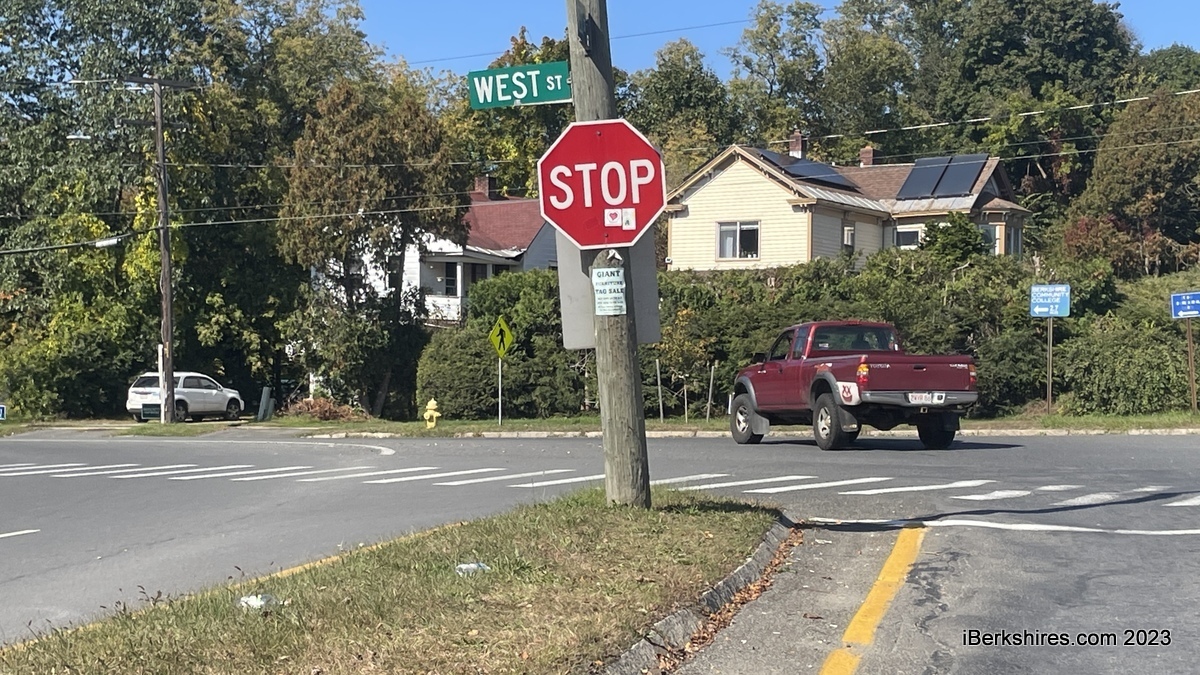
Pittsfield Councilors Discuss Ban on Median Standing
PITTSFIELD, Mass. — City councilors feel that people standing in roadway medians — from panhandlers to protesters — is a public safety hazard and want to find a solution.
On Tuesday, the Ordinances and Rules subcommittee mulled a petition from Council President Peter Marchetti requesting to create an ordinance to ban people from standing on median strips unless crossing the street.
It was tabled to gather input from interim Police Chief Thomas Dawley, City Solicitor Stephen Pagnotta, Commissioner of Public Services and Utilities Ricardo Morales and City Engineer Tyler Shedd.
Marchetti cited the city of Framingham's ordinance enacted about a year ago that lists several applicable streets, recommending that Pittsfield's rule applies to 12 main roads: North, South, East, West, First, Tyler, Center and Elm Streets; Dalton and Hubbard Avenues; and Merrill and Cheshire Roads.
The council president is open to recommendations and wants input from city department heads such as the police and the Department of Public Services.
"I think that in order to have this conversation about it being a public safety issue, we really should ask the [city] engineer and the public services commissioner to weigh in on these intersections an a safety point of view, a traffic point of view, and ask for recommendations of additional roadways that they would deem to be dangerous," he said.
Panhandling has been a prevalent topic since the city's rise in homelessness during the COVID-19 pandemic. Marchetti insisted that this effort is centered around public safety.
Ward 7 Councilor Anthony Maffuccio and Councilor at Large Peter White spoke in support of a citywide ban rather than having it apply to certain routes.
"I'm in full agreement with this but I'm in full agreement with banning throughout the city. If we're going to do it, let's do it right," Maffuccio said.
"Let's not start picking locations and then being picked off by the media eventually saying we're picking off locations of panhandling, this becomes an issue of addressing panhandling. Even though we're not talking about it, I am. I'm bringing that out in the forefront because that's where it's at."
White reported that he has seen people holding political signs and other types of signs in the median strips.
"It becomes a safety hazard not only for the person but also for the drivers. They're distracting as they go by so I can really see banning all median strips is the way to go with this," he said.
And there will be some unintentional consequences. The firefighters, if they want to do a boot drive, they're going to have to follow the 'no median strip.' If a carwash wants to advertise, they have to find a way other than being in the median strip if we pass this."
Ward 1 Councilor Kenneth Warren said the city cannot regulate the content of activity and needs an ordinance that covers everyone. For example, he said if the Girl Scouts were selling cookies in the median strip it would be just as unsafe as any other activity.
"There is definitely a safety aspect to it," he said, adding that even people who stop trying to help a person in the median can cause havoc to other drivers.
He said this needs to be explored further.
Councilors agreed that the fining aspect may be a challenge.
Ward 6 Councilor Dina Lampiasi recognized that there is a safety issue but has questions for the police chief about enforcement.
"I think some of the more punitive actions that may come forward for those panhandlers could be concerning to some of the community and I would like to have more conversation about what that looks like," she said.
"More specifically what kind of fine progression, if we were to consider this in our community, would we be looking to do?"
She pointed to the provided example that starts with a $50 fine, goes up to $100, and then to $300 for a third offense.
"For somebody who is truly living below the poverty line, and just trying to get a sandwich, this is pretty concerning," Lampiasi said.
The councilor would also like to know what happens if a person cannot pay the fine and how the city would enforce the rule, pointing to the department's lack of enforcement of speeding because there are not enough officers or higher priorities.
Maffuccio also expressed concerns about enforcement and people's ability to pay the fines.
"We are going after a community of individuals who are going to be fined that don't have money to pay these fines and we know that ahead of time because they're going to still stand there no matter what," he said.
"So we can write any kind of law we want, put any fine in place, any denominator and the fines are not going to get paid."
White hopes that the fines are a last resort, as with any city department.
"I hope that they're there just as deterrence and right now we have activities going on by multiple parties that could be dangerous to drivers and themselves and we have no way to have anyone say you can't be doing it so If all this ends up being is a ‘Please move along,' and no fines are ever collected, I'd be happy if no fines are ever collected in the city if we don't have activity that those fines are supposed to deter," he said.
"So I understand where everyone's coming from. I would just like to see us get to a point where whenever we look at a fine structure, it's a last resort and it's really just something to say ‘This isn't a welcomed activity' based on public safety or anything else."
Marchetti pointed out that most of the city's fine structure has a written first notice without a fine and doesn't see why this wouldn't follow suit.















